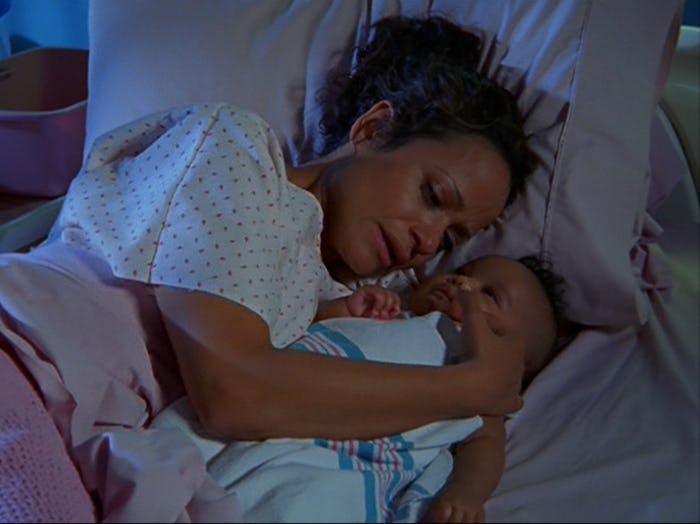Postpartum is a word many women use after giving birth to their child — they talk about their postpartum bodies, their postpartum hormones, and even their postpartum anxiety. But what is postpartum anxiety? Is it the same thing as postpartum depression or the baby blues or is it something entirely different?
Postpartum depression isn't as widely talked about as it should be, but it's become a term that many women hear during their pregnancy and after giving birth. But for women who aren't feeling depressed, but rather overwhelmed, anxious, and restless, they may not know how to name their feelings. Postpartum depression has its own list of symptoms, but postpartum anxiety is separate. Some women may suffer from both, but in general, the two are very different despite there not being a one-size-fits-all approach to postpartum anxiety or depression.
According to a study in Pediatrics, postpartum anxiety is not usually screened in mothers who have given birth despite how common it is. In fact, the same study found that out of the 1,000 new moms in the study, 17 percent had postpartum anxiety.
So what is it? Baby Center noted that recurrent feelings of intense worry or panic after having a baby can be classified as postpartum anxiety. There are normal levels of anxiety, sure, but postpartum anxiety includes a distressing level of feeling anxious, worried, or scared. According to Postpartum Progress, some symptoms of postpartum anxiety include racing thoughts, not being able to quiet your thoughts or relax, feeling like you should be doing something all the time (like playing with the baby, checking on the baby, or cleaning), disturbing thoughts that are completely unlike you, and even physical symptoms like an upset stomach, no appetite, or not being able to fall asleep.
Parents explained it best — while many parents my have an irrational fear that something will happen to their baby, they are able to dismiss it from their mind and chalk it up to overreacting. For those suffering from postpartum anxiety, they are not able to quiet those fears and instead begin to focus on them. It becomes an intense fear and can affect your daily life, like being too anxious to drive with your baby in the car because you are worried about something happening.
According to the same article from Parents, hormonal shifts are to blame for postpartum anxiety, not to mention all of the changes coming your way — lack of sleep, relationship adjustments, and, oh yeah, caring for a newborn that is completely dependent on you. These circumstances can easily become overwhelming and act as a trigger for postpartum anxiety.
U.S. News & World Report also reported that those who have suffered from anxiety before pregnancy may be more susceptible to postpartum anxiety as the situation just exacerbates previous moods and feelings. It's also important to remember that postpartum anxiety doesn't last forever. Postpartum Progress noted that postpartum anxiety is a very common disorder and completely treatable — there is nothing to be ashamed of about asking for help.
Although postpartum anxiety may not stop you from taking care of your child, it can stop you from engaging and enjoying motherhood. If the worries and fears are so loud that they are drowning out rational thoughts and your old self, reach out to your healthcare provider for information on treating your postpartum anxiety.
